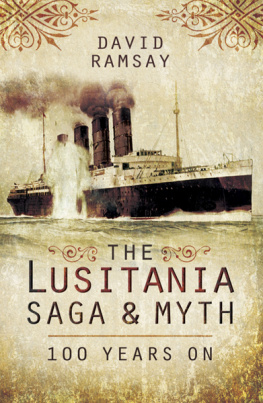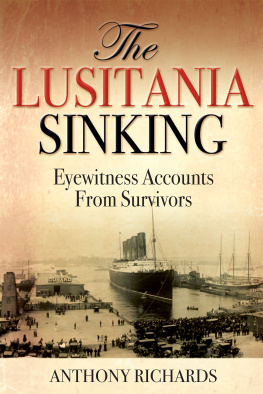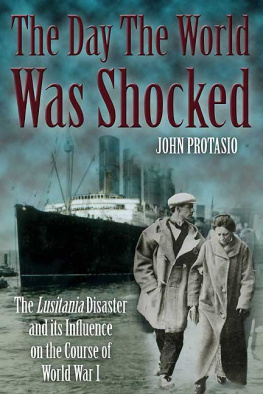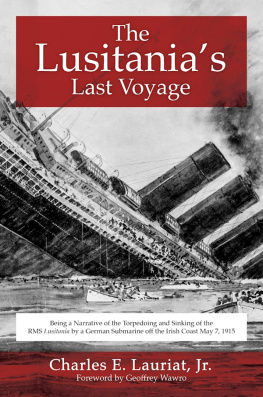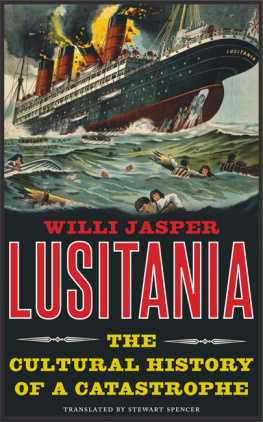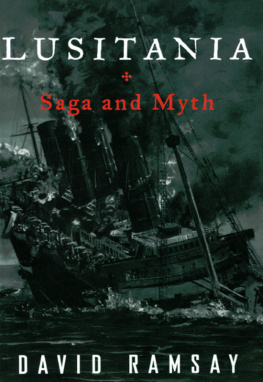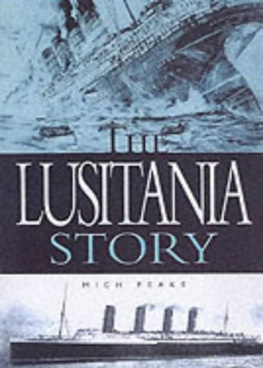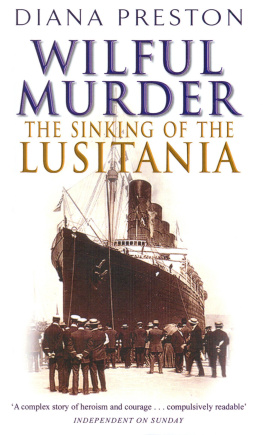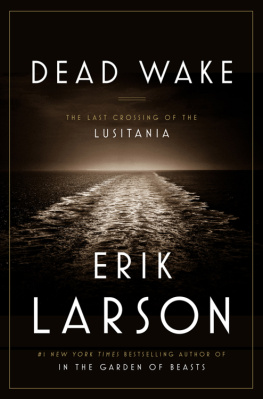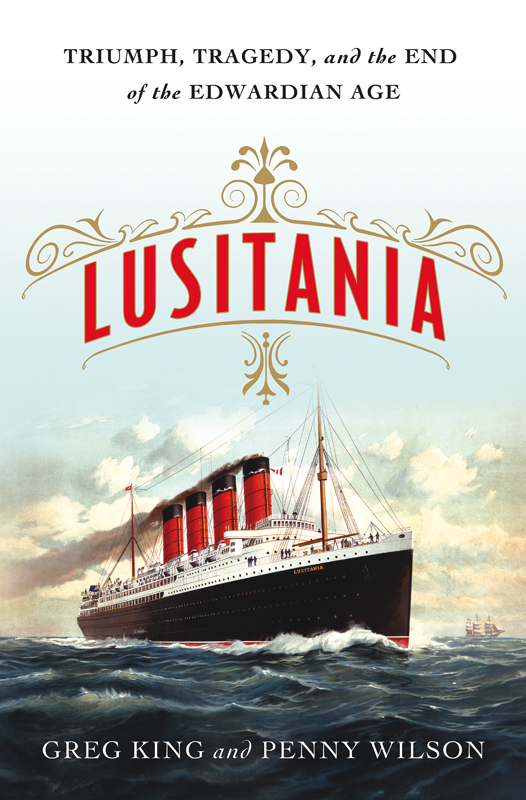Contents
Guide

The author and publisher have provided this e-book to you for your personal use only. You may not make this e-book publicly available in any way. Copyright infringement is against the law. If you believe the copy of this e-book you are reading infringes on the authors copyright, please notify the publisher at:
us.macmillanusa.com/piracy.
In memory of my beloved mother, Helena
Greg
To my parents, Edward and Mary OHanlon, with love
Penny
The writing of any book can be a complicated and challenging process; at best, it also offers scope for expression and a useful outlet for energies and ideas that might otherwise rumble endlessly around in ones head. This book, born in and written under less than ideal circumstances, has ultimately provided the kind of experience for which every author hopes: new friendships, generous fellow researchers, intellectual exercise, and ultimately the transformation of concept into reality.
This book was really the brainchild of two people who believed in the idea and who helped to push it to fruition: our agent, Dorie Simmonds, in London, and Charles Spicer, our editor at St. Martins Press. Even when energies, effort, and attention were flagging, both remained constant sources of encouragement. Charlie in particular has understood late developments and deadline extensions that might otherwise have proved catastrophic. And April Osborn, assistant editor at St. Martins Press, has helped answer queries and been an often sorely needed source of good news.
The idea for this book was first discussed in the summer of 2013, at a time when Gregs beloved mother, Helena, was in declining health, and much of his attention was thus diverted elsewhere. Helena had enthusiastically supported Greg throughout his efforts. Her death in September, just a month after this project began, was an unexpected blow, as Greg and his father, Roger, struggled through a difficult mourning process.
Greg thanks his beloved father for his encouragement and invaluable support in this especially trying time.
Reassuring relatives also helped: Greg would like to especially note the thoughtful and much appreciated attentions of his aunt and uncle Virginia and Willard Pearson; his cousin Jeannine Evans; his aunt and uncle George and Ann Cline; and his aunt Anna King. Everyone mourns in a different way: this bookdemanding so much of Gregs time and attention each daybecame an invaluable outlet for his energies and helped focus his mind at a time when concentration was difficult.
Greg would also like to thank a truly supportive group of friends, even if the last few years have often left him preoccupied with other concerns: Janet Ashton, Bob Atchison, Antonio Prez Caballero, Diana and Nick de Courcy-Ireland, Simon Donoghue, Professor Joseph Fuhrmann, Coryne Hall, Ceceilia Hamilton-Brown, Sophie von Hohenberg, Chuck and Eileen Knaus, Marlene Eilers Koenig, Angela Manning, Susanne Meslans, Ilana Miller, Rob Moshein, Mike Pyles, Karen Roth, Debra Tate, Katrina Warne, and Sue and Mike Woolmans. Brad Swenson, of Buy and Sell Video in Everett, Washington, not only kept him entertained but also came to his technological assistance during research. And Arturo Beche, editor and publisher of the European Royal History Journal, has provided enthusiastic support and a diverting mixture of projects to keep him current in the royal history universe.
Penny would like to thank her family for their support: Peter and Lynne OHanlon of Providenciales, Turks & Caicos Islands; James and Tricia Manara of Phoenix; Jon Phillips of Tucson; Peggy, Darren, Eric, and Ryan Cartwright of Riverside, California; Barbara Wilson of Riverside, California; and Mary Kelsey of San Diego. Above all, thanks to Tom Wilson, for midnight repairs on Pennys computer, for buying and building extra bookshelves, for taking over at home during archival visits, and for generally enduring life with a writer for almost twenty years.
Penny would also like to thank her employees and coworkers at Riverside City Gym, who have carried on keeping the doors open when the boss was unavailable: James Brown, Justin DeSoucy, Daniel Early, Nicole Flaherty, Gino Gonzalez, Gio Gonzalez, Alex Howard, Haley Hyland, Clayton Nicodemus, Wellington Porter, Jennifer Rider, James Shearer, Josh Sweeten, Casey Watson, David Watson, Jisel Wilson, and Alvin Wright. Thanks also to Bent Corydon, Ivan Crystal, Rosie Prez, and Guillermo Prez. And many thanks to Eugene Mejia, Don Lowrey, and Chris Schaper.
And thanks to the many gym members who have pitched in and helped, supporting Penny through the flood of Labor Day Weekend 2013 and generally through the last two years. You guys are awesome!
Occasionally in life, one comes across a person wiser and stronger than his years. Penny thanks Andrei Karlin, hope of the future, for being himself, which is a wonderful thing to be. We wish him nothing but the very best, though he already has much of that in his family.
Penny thanks Simon Donoghue, for years of friendship, laughter, and historical shenanigans. She looks forward to meeting him in person one day. She also thanks Oscar Shearer for his friendship and everything that means, from workouts to diet tips, conversations to arguments on subjects as varied as cars, Middle Eastern politics, and Spartan warfare. She looks forward to many more years of the same.
* * *
Finally, thanks to Pennys longtime PS friends, most of them never met in person, but all of them valued as much as those met every day.
In researching this book, we have been lucky to draw upon the patient and amiable help of a number of institutions and archives. We would like to thank Aya Ito and Bill Barker for access to the Hoehling and Hoehling Archive at the Mariners Museum, Christopher Newport University, Newport News, Virginia; Matthew Chipping of the BBC Archives, Perivale Park, London; the staff of the McCord Museum in Montreal, for help in researching the family of Marguerite Allan; Michaela Strong at the National Archives and Records Administration in Maryland; Darren Yearsley of the CBC Radio Archives, Ottawa, Ontario, Canada; and especially Carol Leadenham of the Hoover Institution on War, Revolution, and Peace, at Stanford University in Stanford, California. Carol not only allowed us access to the Bailey and Ryan Archive there but also took the time to show us the handle of an oar inscribed Lusitania, which was donated to the Hoover Institution, and which allegedly came from one of the lifeboats used on May 7, 1915.
Chris Lands, of Seaocean Book Berth in Seattle, located many of the obscure maritime works we used.
We also thank Joan Blacker, Interlibrary Loan Specialist at the Everett Public Library, and the Everett Public Librarys reference staff for their thorough and diligent research and work in locating some of the rare and obscure materials on which this book draws. Their assistance proved invaluable.
We are happy to thank Mary Carpenter of Riverside, California. Mary is the granddaughter of Lusitania passengers Gladys and Albert Clay Chris Bilicke. She provided us with anecdotal information regarding her family, which corrected some of the misinformation about them that has seeped into the historical record. She has also shared photographs of her grandparents for use in this book.
Oscar Shearer provided much-needed advice and technological expertise in preparing the illustrations in this book. We thank him for his patience and generosity.


